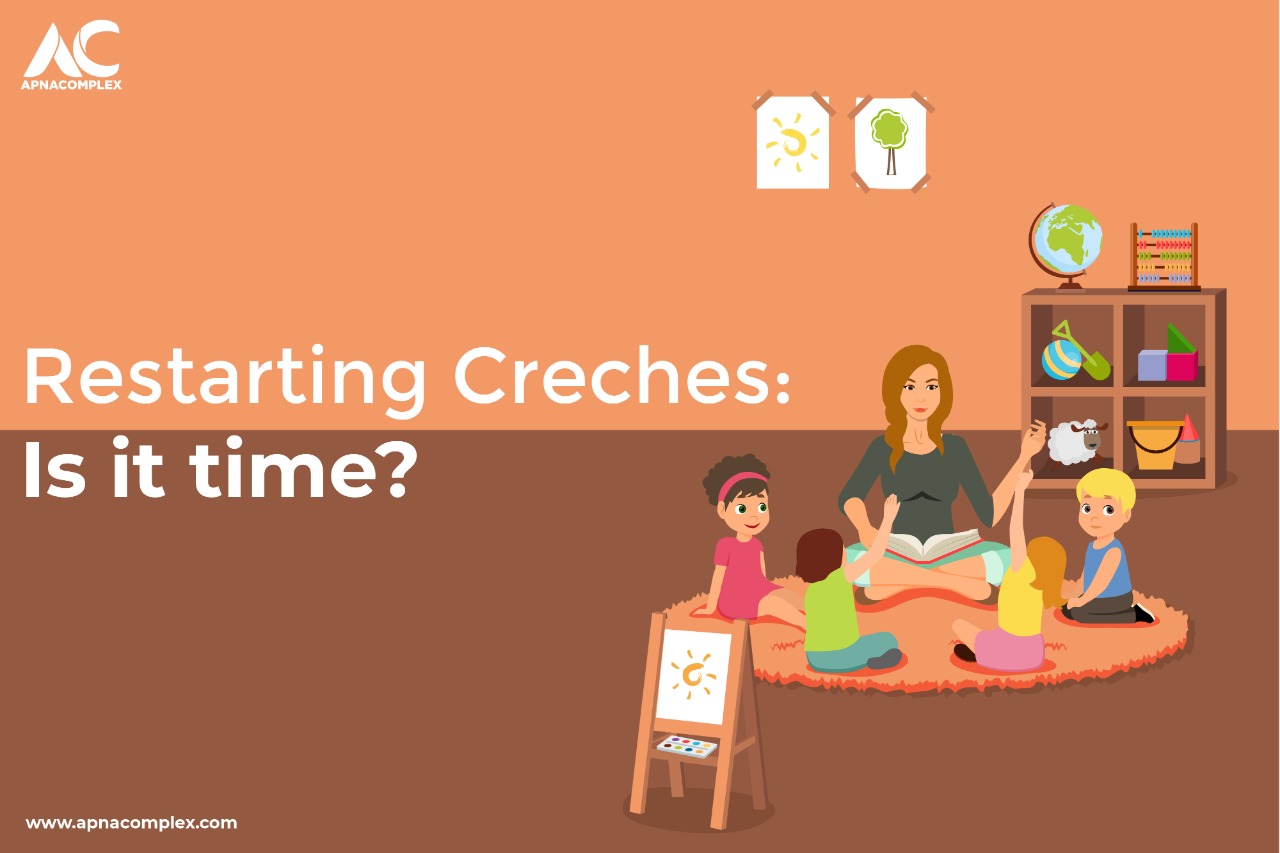Is it Time to Reopen the Society Creche?
Product News COVID guidelines, creche, daycare, Society crecheAfter two years of worldwide pandemic lockdowns, life has been returning to normalcy with gusto. As offices mandate physical attendance, many parents once again find themselves grappling with the problem of arranging proper care for their tiny tots. This has led to the demand for reopening childcare centres in residential societies.
Childcare facilities offer a safe environment for children, allowing many parents the freedom to work or take time off for themselves. However, this arrangement came to a stop during the pandemic when such centres were forced to shut down. But as the normal pace of life picks up again, it is time to ask if housing societies should reconsider opening up creches.
Increasing vaccination
High-contact areas like pre-schools and creches faced a global shutdown during the pandemic as a precautionary measure. Now we know that the direct impact of COVID-19 on child, adolescent and youth mortality is limited. Many countries chose to reopen schools so that parents could resume work. In India, we have taken a cautious approach, preferring to wait and watch. This has also been triggered by parents who were reluctant to send their children to daycare centres after two years of social distancing.
All this has changed after near-universal vaccination. Thanks to one of the largest vaccination drives in the world, almost all Indian adults are vaccinated today. With children from 5 years of age now eligible for COVID vaccines, we are inching closer to vaccinating the entire population. As a result, we have seen an aggressive push across different industries to resume normal operations, eventually leading to opening up of offices. Working parents can no longer afford to stay home to take care of their tiny tots. Consequently, there is now an increased demand for daycare across gated communities.
Benefits for children and working women
The availability of childcare is a critical factor when it comes to working women. Even before the pandemic, a distressing 73% of new mothers reported leaving their jobs. Of this, only 27% return to work with a mere 16% advancing to senior positions. The pandemic has further worsened the situation with several studies indicating its disproportionate impact on women workers.
Women were 7 times more likely to lose their job due to lockdown and 11 times more likely to not return to work even after the resumption of normalcy. The lack of appropriate childcare options remains a prime reason behind the skewed sex ratio in the Indian workplace.
It is not just mothers who will benefit from the opening up of creches. The social isolation coupled with lack of physical activities has also affected small children. It drastically changed their daily life and routines, removing access to play areas and the ability to interact with their friends. A UNICEF study found an increased risk of mental health symptoms like depression and anxiety among children.
Putting children safety on top
While there is an urgency to open up creches, we must stay mindful of COVID safety measures. Children should also be encouraged to follow certain rules of behaviour. UNICEF has issued guidelines on opening up preschools and kindergartens which can be viewed here. Some of the critical measures that can be adopted by creches are as follows:
- Follow a well-planned opening with safety measures in place
- Ensure that all areas are well-ventilated and airy
- Support and educate caregivers
- Teach healthy hygiene practices to young children
- Partner with parents on a smooth transition from home to creche
- Discuss COVID-safe habits in a child-friendly, honest manner
- Communicate a clear policy to be followed in case a child or caregiver tests COVID +ve.
With a high demand for reliable and accessible daycare, residential societies are now under increased pressure to reopen creches and daycare centres for children. As these centres gear up to reopen, we must also stay vigilant about following COVID-safe measures.
